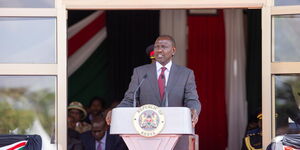The Principal Secretary of the State Department for Micro, Small and Medium Enterprises (MSME) Susan Mang'eni has highlighted the crucial role MSMEs play in Kenya's economy.
Speaking at a panel discussion on KBC, Mang'eni underscored that MSMEs contribute approximately 40% of the country's Gross Domestic Product (GDP) and provide 90% of jobs, emphasizing their importance in driving economic growth and employment.
"MSMEs contribute about 40% of our GDP, and 90% of our jobs," Mang'eni stated.
Mang'eni's comments shine a light on the immense potential of the MSME sector, which forms the backbone of the nation's economy by creating jobs and fostering economic activity.
Despite their substantial contributions, Mang'eni noted that the MSME sector remains under-exploited, suggesting that it has the potential to contribute even more significantly to the economy.
"Unfortunately, we are under-exploiting them because we have an opportunity to contribute up to 80% of the country's GDP," she remarked.
This observation points to a considerable untapped potential within the sector, which, if harnessed effectively, could lead to substantial economic growth and development.
In her previous address, the Principal Secretary stated that the sector is instrumental in creating jobs and ensuring economic development.
"The MSME sector is a critical component of the economy, contributing significantly to job creation, poverty eradication and economic growth," the PS said.
Speaking on the same panel, Agriculture Principal Secretary Paul Ronoh disclosed that the government had rolled out a plan to employ seven young people from every ward to enable agricultural programs.
"We're employing 7 young people in every ward which is around 10,000 youth in the next 3 to 4 months to assist farmers. During Madaraka Day we already had 3,000 youths recruited in agricultural programs," Ronoh stated.
President William Ruto's Bottom-Up Economic Transformation Agenda targets sectors with high impact to drive economic recovery.
The BETA objectives are: bringing down the cost of living, eradicating hunger, creating jobs, expanding the tax base, improving foreign exchange balances and inclusive growth.












